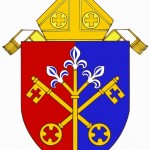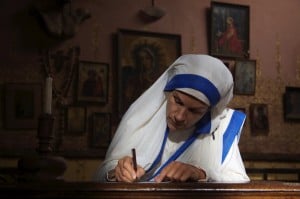 It was more than ten years ago that I fell in love with Greenville, South Carolina.
It was more than ten years ago that I fell in love with Greenville, South Carolina.
Greenville is located in the Upstate, in the foothills of the Blue Ridge Mountains. From the highway, you can catch a glimpse of the mountains to the northwest; and it’s an easy drive to Charleston and the Atlantic Ocean to the southeast. The weather is balmy—with four distinct seasons, yet so warm compared to our Michigan home.
Greenville’s tree-lined Main Street, featuring a lively shopping district patterned after Paris’s Avenue des Champs-Élysées, offers boutiques and bars and ice cream parlors, and sidewalk cafes where you can rest for a spell and watch the entertainment at the city’s many festivals.
Nature has blessed the Greenville area. An old mill town, the city is built on a waterfall along the scenic Reedy River. The Liberty Bridge, a 355-foot stretched cable suspension bridge, spans the Reedy River Falls and provides pedestrians with spectacular views of Falls Park and the gardens below.
 But for me, Greenville’s pièce de résistance is the beautiful St. Mary’s Catholic Church. I’m not alone in my appreciation of the parish: Catholic writer George Weigel has written, in his book Letters to a Young Catholic, that there is “no better church in all of North America.” And St. Mary’s pastor, Fr. Jay Scott Newman, is a big part of the reason why.
But for me, Greenville’s pièce de résistance is the beautiful St. Mary’s Catholic Church. I’m not alone in my appreciation of the parish: Catholic writer George Weigel has written, in his book Letters to a Young Catholic, that there is “no better church in all of North America.” And St. Mary’s pastor, Fr. Jay Scott Newman, is a big part of the reason why.
For several years, before our careers and my husband’s diaconal service redirected our focus, I hoped that we might one day move to Greenville. That seems a pipe dream today—but I still follow enthusiastically the writings of Father Newman.
All of this to tell you: I LOVED Father Newman’s letter this weekend in the parish bulletin. I was going to excerpt a poignant quote or two—but it’s simply impossible to reduce this excellent essay to a few sound bites. I’ve included it in its entirety.
Thank you, Father Jay Scott Newman, for your faithful teaching. You always inspire, urging us on in our Christian journey and reminding us of the prize, should we persevere: a place at the heavenly banquet.
First Sunday of Lent 11 March 2011Dear Friends in Christ,
“I believe and profess all that the holy Catholic Church believes, teaches, and proclaims to be revealed by God.”
These are powerful words. They are words of faith, and they testify to a heart and mind converted by the truth of the Gospel, which is the power of God unto salvation for all who believe. These are the words spoken each year by hundreds of thousands of men and women who were baptized into the Lord Jesus but outside of the Catholic Church and who later are called into full communion with the Church, often after years of searching for (in Father Longenecker’s fine phrase) “more Christianity.” In six weeks, at the great Vigil of Easter on the night of Holy Saturday, these words will be spoken by a great cloud of witnesses all over the world, including a group of about 30 right here at St. Mary’s, and it is this public declaration of faith which changes a non-Catholic Christian into a Catholic Christian.
This bold profession of faith should encourage those of us who are already Catholic to take great care to nurture and preserve our faith, lest we join the vast army of ex-Catholics who will soon constitute the single largest religious body in America. In both 1990 and 2008, the American Religious Identification Survey was taken, and the findings are startling. In the six states of New England, the Catholic population declined from 50% to 36%, a drop of more than one million persons in 18 years. At the same time, the number of Americans who have no religious beliefs increased from 8% to 15%, and the self-identified Catholic population declined in 29 states. These findings confirm similar results published in the Baylor University Religion Surveys of 2006 and 2008 and the 2008 report of the Pew Forum on Religion and Public Life, which found that although one in three Americans were raised in the Catholic Church, only one in four still identify themselves as Catholic—meaning that 10% of all Americans are ex-Catholics.
These are the bitter fruits of the false catholicisms I call casual, cultural, and cafeteria catholicism, and these false forms of religion yield only spiritual mediocrity, doctrinal confusion, uncertain commitments, and a negotiated truce with sin which leads to the death of the soul. The antidote for this deadly disease is the truth of God’s Word which calls us to radical conversion, deep fidelity, joyful discipleship, and courageous evangelism. You probably know a Catholic who no longer goes to Mass, hasn’t been to Confession in decades, and rejects the divinely revealed truth about marriage, human sexuality, or abortion—the usual battlegrounds in our time between the Gospel and our decadent culture. To such persons the greatest gift you can give is the witness of your own faith, and I pray that your faith can truthfully be expressed in the courageous words of the thousands of souls who say: I believe and profess all that the holy Catholic Church believes, teaches, and proclaims to be revealed by God.
Father Newman











